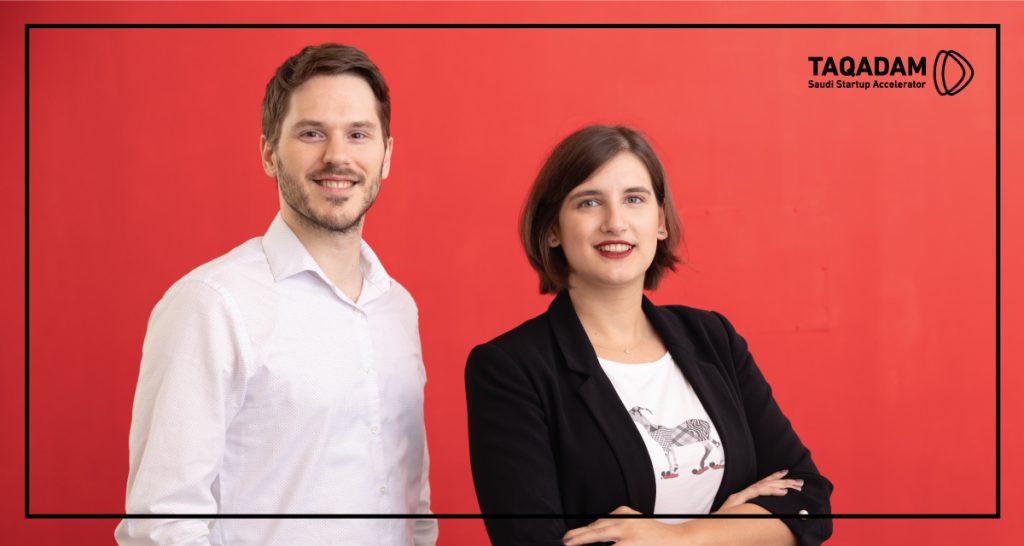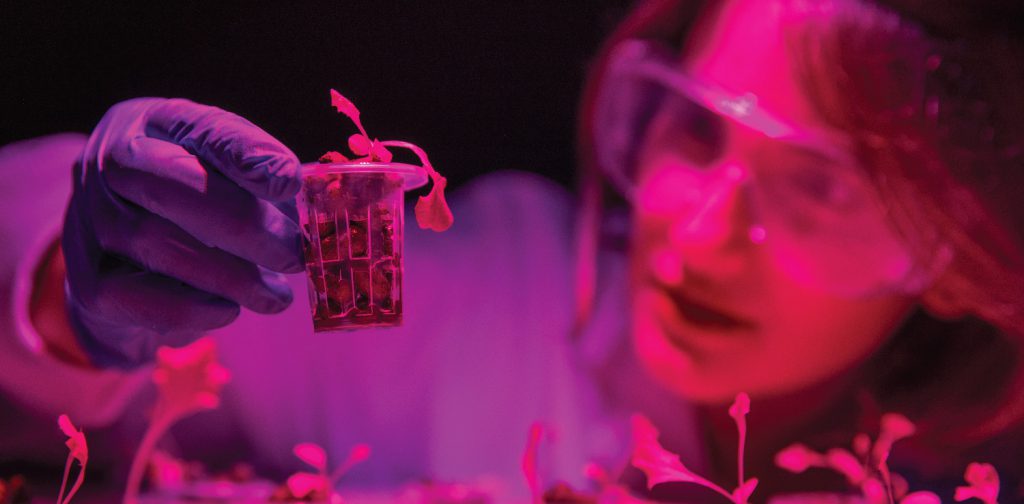Launching a startup can be tough and many aspiring entrepreneurs have questions about where to start. To shed some light on the startup journey, we’re sharing stories and insights from some of our TAQADAM Startup Accelerator founders and program mentors. If you’re interested in applying, click here to learn more about the program.
Solving the global problem of food scarcity is what Vasiliki Kordopati and Robert Werfelmann are ambitiously attempting to do with their startup Oæsis (Oaesis). With the global population growing at a rapid pace, the pair created a startup that uses the latest lighting technologies to grow food sustainably.
“Many people have seen that we are not able to feed our global population,” said Kordopati, who is originally from Greece. “With climate change and the impact on deserts, people are increasingly looking to indoor farming. These farms depend 100 percent on artificial lights for the plants to grow.”
After many years of research at King Abdullah University of Science and Technology (KAUST), the startups’ patented laser-based lighting technology has proven powerful enough to help plants grow more efficiently, surpassing current technologies such as LED lights. The limitations of LED lights can create unfavorable environments for plants, through increased heat which can affect growth, destroy valuable leaves, and leave farmers with hefty lighting and cooling bills. In contrast, through a combination of research and experimentation, Oaesis technology can emit up to 95 percent less heat and is up to 30 percent more energy efficient than other leading brands of horticulture LED lights.
“With lasers you can direct the light to the plant without any effect on them,” she added. “The current technologies can’t do that because LEDs need to be a specific distance from the plant to be efficient.”
The TAQADAM Startup Accelerator experience
The TAQADAM Startup Accelerator, a partnership between KAUST and Saudi British Bank (SABB) helped bring their idea to life with support in marketing, branding, business skills, funding and lab resources. “The mentors were always available for advice,” said Werfelmann, originally from Portland, Oregon, in the United States. “Part of the learning process was teaching us how to really get our idea out, develop it and make it presentable.”
The support is vital for entrepreneurs who are starting out in a competitive market. “The mentorship was really important for us,” Vasiliki said. “Every week we had a mentor discuss our progress and brainstorm ideas, which was crucial to kick off our startup.”
The TAQADAM experience has helped Oaesis pitch around the world, most recently at Startup Istanbul. “We really felt the difference and that the advantage we had from the program was tremendous,” explained Kordopati. “What we gained from TAQADAM was really important, in terms of how and what to present. And the quality of the startups in TAQADAM is better – from the ideas to the execution.”
After winning SR 375,000 of follow-on funding at the TAQADAM 2018 showcase, the team is currently working on the startup full time and has built a full-scale prototype in their lab based at KAUST. They are focusing on product development and design while conducting experiments and collecting data for potential customers in their pipeline. The startup aims to launch in the market by mid-2019.
“We’re looking to improve indoor farming so that we can help make the future more sustainable,” Werfelmann concluded. “The way I see it, once Oaesis starts the piloting phase and customers observe the energy consumption and heat emission benefits of our, then our technology is going to be the next step in the agritech evolution.”
Find out more about TAQADAM Startup Accelerator
Discover the TAQADAM program
Why you should join a startup accelerator
What we look for in a TAQADAM application


